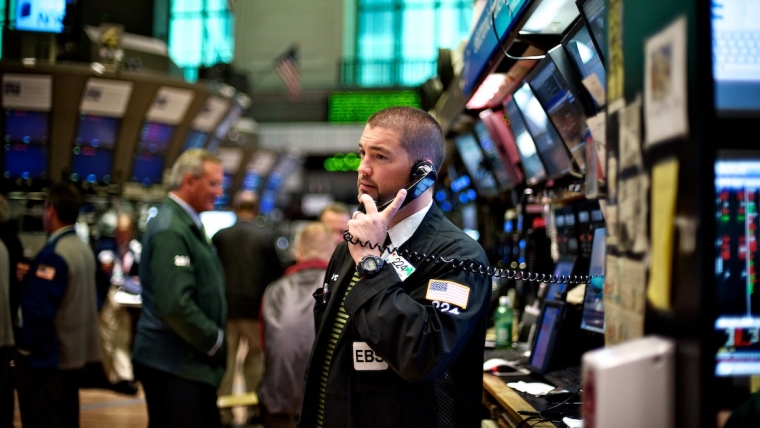
Equity markets have risen (S&P500 +1%) despite another unprecedented surge in US jobless claims, to well above 6 million. The big market mover overnight was oil, which rocketed more than 20% higher after Trump said he expected OPEC+ to agree to a 10m-15m barrels per day supply cut, although Russia has denied this. Energy sector stocks have led gains on the S&P500, US inflation expectations have increased and commodity currencies have outperformed despite broader USD strength elsewhere. There have been further signs of life in primary credit markets offshore.
We’ll start with the oil market, for a change. Overnight, Trump tweeted that he had spoken with both Crown Prince Mohammed bin Salman (MBS), Saudi Arabia’s de facto leader, and Putin and expected the two would come to an agreement to cut back oil production by approximately 10m barrels per day, but possibly up to 15m. Saudi Arabia has called an urgent meeting of OPEC+ (which includes the usual OPEC member countries and Russia). Oil prices surged more than 20%, albeit from what were the lowest levels since 2002 (in terms of Brent crude). Prices came off their highs of the day after Russia denied that Putin had spoken to MBS, pushing back on suggestions that this was a done deal, and newswires reported an OPEC delegate as saying that the cartel would merely announce a decision to cut production “eventually”. Huge production cuts (not record high levels of production, as Saudi Arabia is currently undertaking) are needed for the oil market to return to some semblance of balance, given the massive demand destruction taking place due to the global recession. Earlier, Blomberg reported that China would purchase oil to boost its strategic reserves.
The S&P500 is currently 0.5% higher on the day, having been up as much as 2.5% at one stage. Energy sector stocks have led the charge (+6%). The VIX measure of implied volatility has drifted down to around 50 which, if it remained this way, would be the lowest close in over three weeks.
The market has largely brushed off a further surge in weekly US jobless claims, to 6.65m people (above even the highest forecast among analysts). To give the numbers some context, the previous record high for jobless claims, a series that stretches back to 1966, was 695,000. The market already expects (and is priced for) a severe global recession, the key question for markets is how long it lasts for and how sharp the subsequent recovery is.
There’s been a modest upward drift to global rates, but the moves have been pretty small compared to those seen over the past month. The rise in oil prices helped increase the 10-year Treasury yield to 0.61%, 2bps higher on the day. US market-based inflation expectations (derived from the difference between yields on inflation-indexed bonds and nominals) spiked almost 20bps, although the absolute levels (US 10y breakeven at 1.08%) imply the market expects low inflation to persist for a long time.
There have been further signs of life in the offshore credit markets. US telco T mobile launched a huge $19b multi-tranche bond offering, attracting more than $43b in orders. The deal will be the second biggest this year. In Europe, issuance of investment-grade bonds totalled more than €25b, with spreads tightening by up 60bps from initial price guidance to final deal pricing, an indicator of strong investor demand (and probably enticing initial pricing). Encouragingly, there were also further signs of thawing in the primary high yield credit market, with two more issuers in this space announcing plans to tap the market tomorrow, following Yum! Brands deal on Monday, the first high yield new issue since the turmoil kicked off. Unfortunately, none of this has filtered through to the New Zealand market, with the secondary market for corporate and bank credit extremely illiquid and primary market activity non-existent.
The Bank of England provided more details on its corporate bond purchases for its recently enlarged QE programme. The BoE said it would buy “at least” £10b of non-financial corporate bonds in the coming months at a “significantly faster pace” than when the scheme was launched in 2016.
In currency markets, the USD is stronger once again, by around 0.5% in index terms. The USD is around 0.7% stronger against the JPY and more than 1% stronger against the euro. EUR/USD is back down at 1.0830.
The CAD and Norwegian krone have predictably outperformed on a day when oil prices rose almost 25%, with both currencies managing small gains against the USD. The NZD and AUD have both fallen, but by less than the safe-haven JPY and European currencies. The NZD trades just below 0.59 this morning.
In a spot of good news, rating agency Moody’s reaffirmed the NZ Government’s credit rating at Aaa. Moody’s said it expected general government debt to rise to 36% of GDP by the end of June 2021, but assessed NZ to have a high degree of shock absorption capacity and a track record of delivering on medium-term fiscal commitments.
The RBNZ introduced a new lending facility yesterday, called the Term Lending Facility (TLF). Details of the scheme are still light, but the RBNZ said it would provide funding to banks for up to three years at low interest rates to support the Government’s recently announced Business Finance Guarantee Scheme. The RBNZ plans to launch the scheme in May, after consulting with the banks.
In a further announcement, the RBNZ said it had agreed with NZ banks that there would be no dividend payments “during this period of economic uncertainty” and that there should not be redemption of other (non-CET1) capital instruments. Share prices for the Big 4 Australian banks were down 4-6% yesterday, underperforming the 2% fall in the benchmark index. Australian bank regulator, APRA, confirmed yesterday that dividend payments for Australian banks would remain a matter for the respective banks’ boards. The RBNZ’s announcement follows a similar move in the UK, where banks agreed to suspend dividend payments at the request of the Bank of England.
US non-farm payrolls is released tonight, with the consensus forecast looking for a 100k drop in employment in March. We’d be surprised if the market took much notice at all, with investors much more focused on higher frequency data, such as jobless claims.
Daily exchange rates
Select chart tabs
3 Comments
36% is optimistic I think. I'm predicting a landslide labour victory at the election, with both nzf and the greens out of Parliament. That gives Labour carte blanche, and with no Winnie to restrain them and a good crisis one can't let go to waste, the debt will explode as Labour goes on an ideological tear while they have the rare opportunity.
Good! NZ needs a massive era of infrastructure spending. The post GFC financialisation policy widened wealth inequality, encouraged irresponsible and frankly grotesque levels of consumption and caused an everything bubble. The only thing that can get the world out of this mess now is a 21st century version of the New Deal and personally, my hope is that will be based around implementing mass sustainable energy infrastructure systems for homes and national transport. We have a shot at making a huge technological leap forward after this mess. We have a chance to become a productive nation with innovations rather than just more rent seeking behaviour.
I think the most concerning thing is the fact that a tweet from a pathological liar can move oil up 20%, doesn't matter if its true or not..at this point nothing trump says can be construed as honest because he ditched any credibility or integrity about 40 years ago...that a population thinks like this is scarier than covid itself.
6.6 million unemployed in 10 days and the Dow goes up 500points today?????????????????????? Ill hold on to my cash for now thank you.
As an aside..I think maybe a previous contributor is right in that Labor will get in with a strong majority..has anyone talked about Capital Gains Tax as a 100% probability fact if they do get in?

We welcome your comments below. If you are not already registered, please register to comment
Remember we welcome robust, respectful and insightful debate. We don't welcome abusive or defamatory comments and will de-register those repeatedly making such comments. Our current comment policy is here.